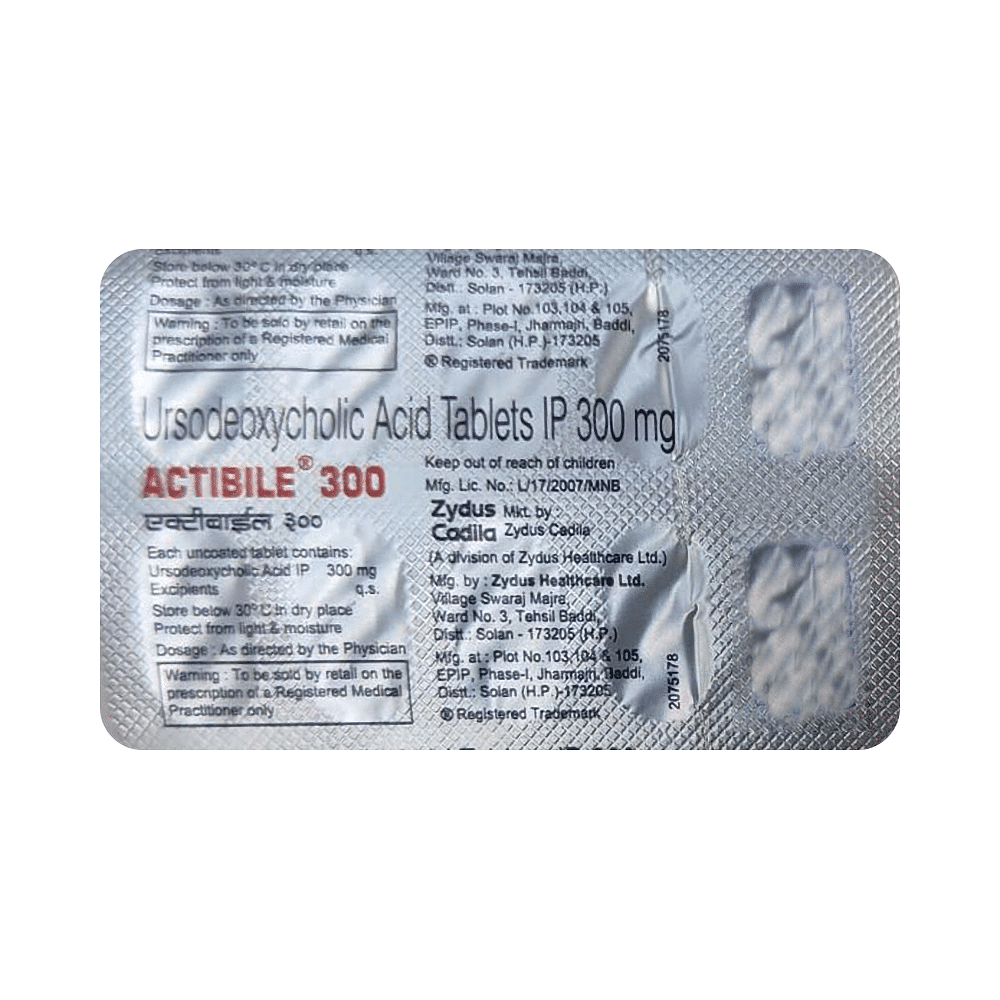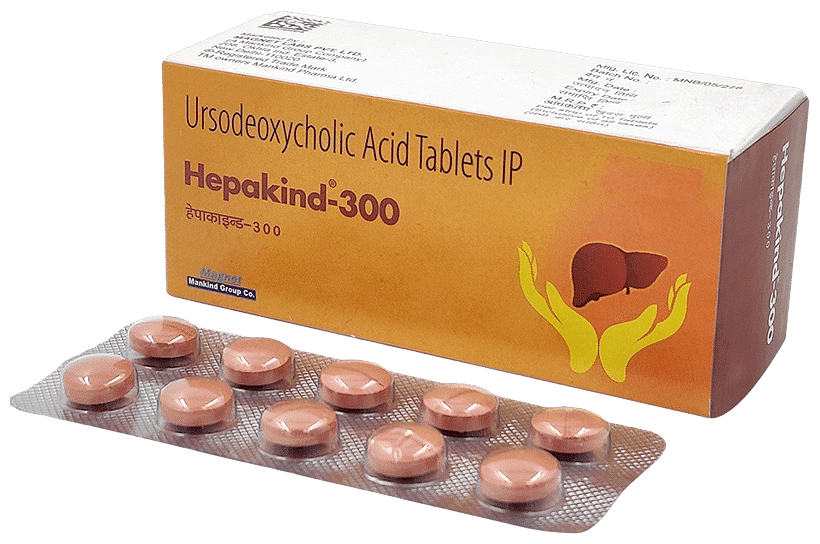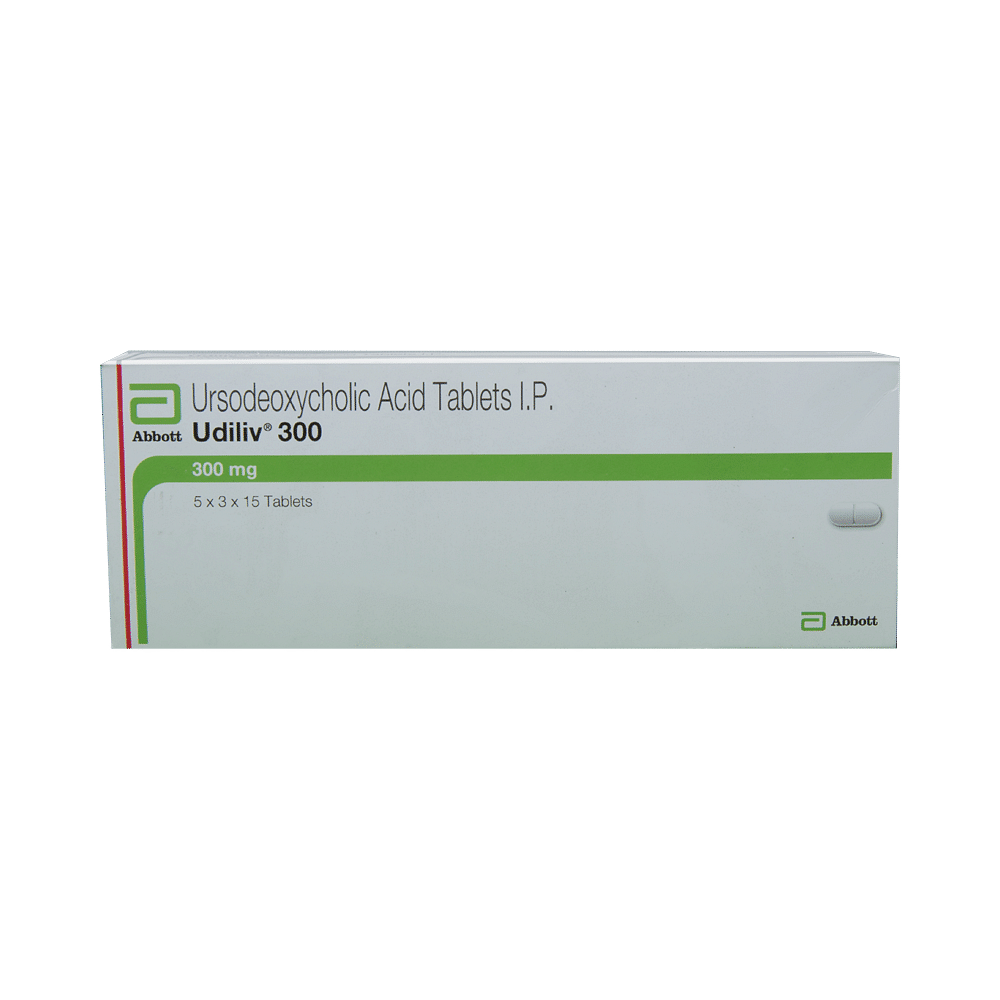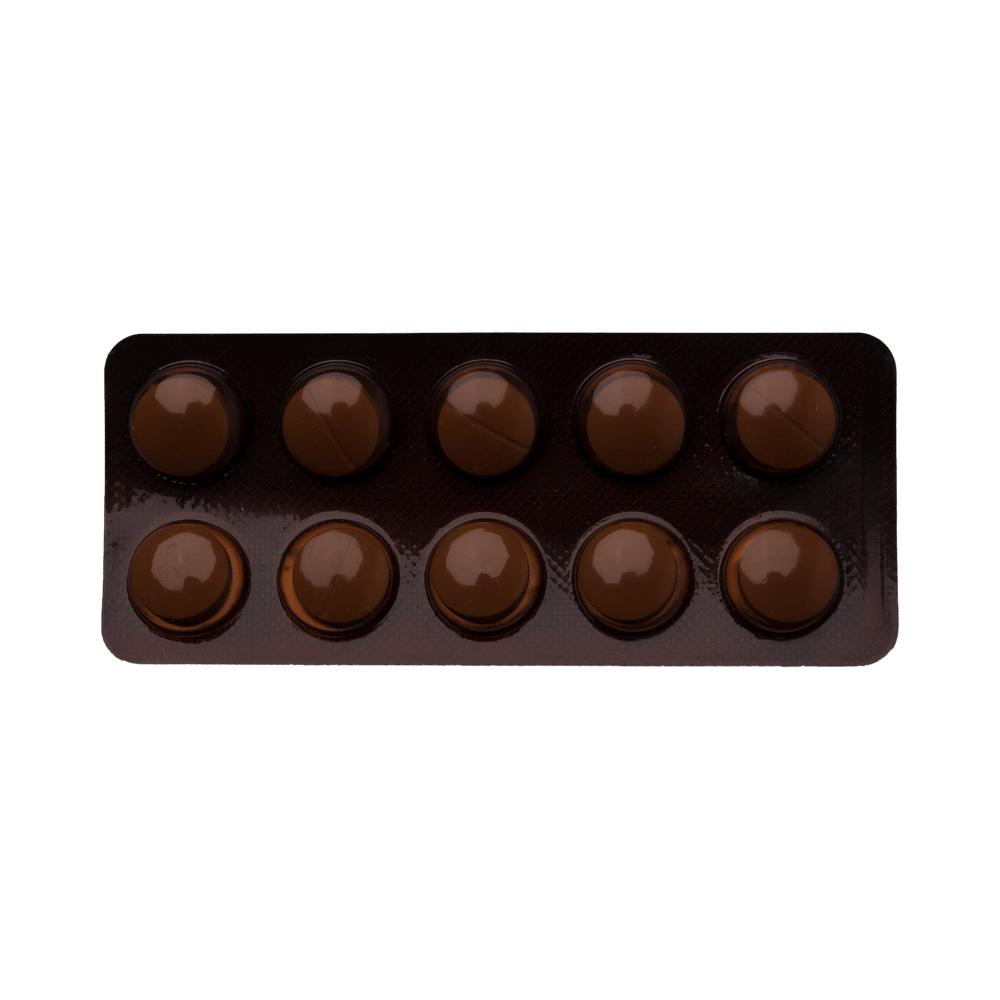
Udigard 300 Tablet
Manufacturer
Servocare Lifesciences Pvt Ltd
Salt Composition
Ursodeoxycholic Acid (300mg)
Key Information
Short Description
Udigard 300 Tablet is used to dissolve certain gallstones and prevent them from forming. It is also used to treat a type of liver disease called primary biliary cirrhosis.
Dosage Form
Tablet
Introduction
Udigard 300 Tablet should be swallowed whole after a meal and with a glass of milk or water. The dose will depend on what you are being treated for and your body weight. Take it regularly to get maximum benefit and keep taking it for as long as prescribed (several months or longer). Keep taking it even if your symptoms disappear. This medicine's most common side effects are abdominal pain, diarrhea, hair loss, itching, nausea, and rash. Not everyone gets these side effects. If you are worried about them or they do not go away, let your doctor know. Before taking this medicine, you should tell your doctor if you have an inflammation of the gallbladder or bile ducts, you get frequent cramp-like pain in your upper abdomen, you have been coughing up blood or you have gained weight rapidly. Using this medicine can reduce or increase the effect of some other medicines so tell your doctor all other medicines you are taking. Women should discontinue hormonal birth control pills as they can increase the production of gallstones. During the treatment, you may need ultrasound scans or frequent blood tests to check your liver function.
Directions for Use
Take this medicine in the dose and duration as advised by your doctor. Swallow it as a whole. Do not chew, crush or break it. Udigard 300 Tablet is to be taken with food.
Safety Information
Side Effects
Abdominal pain Diarrhea Hair loss Itching Nausea Rash
Alcohol Warning
Udigard 300 Tablet may cause excessive drowsiness with alcohol.
Breastfeeding Warning
Udigard 300 Tablet is probably safe to use during breastfeeding. Limited human data suggests that the drug does not represent any significant risk to the baby.
Pregnancy Warning
Udigard 300 Tablet is generally considered safe to use during pregnancy. Animal studies have shown low or no adverse effects to the developing baby; however, there are limited human studies.
Interacting Medicines
Ciclosporin
How it works
Udigard 300 Tablet is a hepatoprotective medication. It works by reducing the amount of cholesterol in the blood and helps dissolve gallbladder stones that are composed mainly of cholesterol. It also improves liver enzymes, protects liver cells from injury caused due to toxic bile acids, and improves liver function.
Quick Tips
Take this medicine in the dose and duration as advised by your doctor Swallow it as a whole Do not chew, crush or break it Take it with food Do not stop taking the medication without talking to your doctor Drink plenty of fluids and inform your doctor if diarrhea persists or if you find blood in your stools Your doctor may monitor your liver function and bilirubin levels every month for the next 3 months after the start of therapy and every 6 months thereafter Eat a healthy diet Exercise regularly Avoid alcohol intake
Related Medicines

Ursobiac 300 Tablet

Actibile 300 Tablet

Hepakind-300 Tablet

Ursocol 300 Tablet

Ursolid 300 Tablet

Sorbidiol 300 Tablet

Ursodox 300mg Tablet

Udiliv 300 Tablet

Usibon 300 Tablet

Ursomax 300 Tablet
Frequently asked questions
When should I take Udigard 300 Tablet?
The timing of taking this medicine may vary depending on your specific condition. Your doctor will provide instructions, such as taking 2 to 3 doses daily and suggesting a final dose before bed. Udigard 300 Tablet can be taken with water, milk, or after meals. For dissolving gallstones, it's usually recommended once daily at night. Ideally, it should be taken with a gap of 6 hours, such as at 8 am, 2 pm, and 8 pm.
Is Udigard 300 Tablet safe?
Udigard 300 Tablet is generally considered to be a safe and effective medication. However, it might cause side effects like diarrhea. If you experience diarrhea, your doctor may adjust the dosage or discontinue treatment if necessary. Additionally, long-term use of this medicine may affect liver enzyme levels. Your doctor will monitor these levels regularly to ensure they remain within normal ranges. While there are minor side effects, Udigard 300 Tablet is a good alternative to surgery in some patients with gallstones.
How does Udigard 300 Tablet help the liver?
Udigard 300 Tablet acts on the liver and concentrates in bile secreted from it. This, in turn, reduces the liver's production of cholesterol, thereby decreasing its level in bile. It also prevents intestinal absorption of bile salts and cholesterol. As a result, the reduced cholesterol saturation in bile leads to the gradual dissolution of cholesterol stones, leading to a decrease in their size and eventual dissolution. It also helps protect the liver by improving bile flow through the liver.
Does Udigard 300 Tablet cause weight gain?
Yes, there's a possibility of weight gain with Udigard 300 Tablet, but it's not common. However, in patients with liver disease associated with chronic bile stasis (where bile doesn't flow properly from the liver to the small intestine), this medicine may lead to weight gain. The chance of experiencing this side effect varies from person to person, depending on their specific condition. Consult your doctor if you notice any significant weight changes.
What should I avoid while taking Udigard 300 Tablet?
When taking Udigard 300 Tablet, avoid combining it with antacid preparations without consulting your doctor. These medications can decrease the effectiveness of this medication. Additionally, avoid using medicines like cholestyramine or colestipol, as these may impact the effectiveness of Udigard 300 Tablet. Therefore, always consult your doctor for the recommended time gap to use these medications alongside Udigard 300 Tablet. Lastly, avoid taking oral contraceptives, estrogenic hormones, and blood cholesterol-lowering agents like clofibrate. These can increase the risk of gallstones, potentially contradicting the effects of Udigard 300 Tablet.


